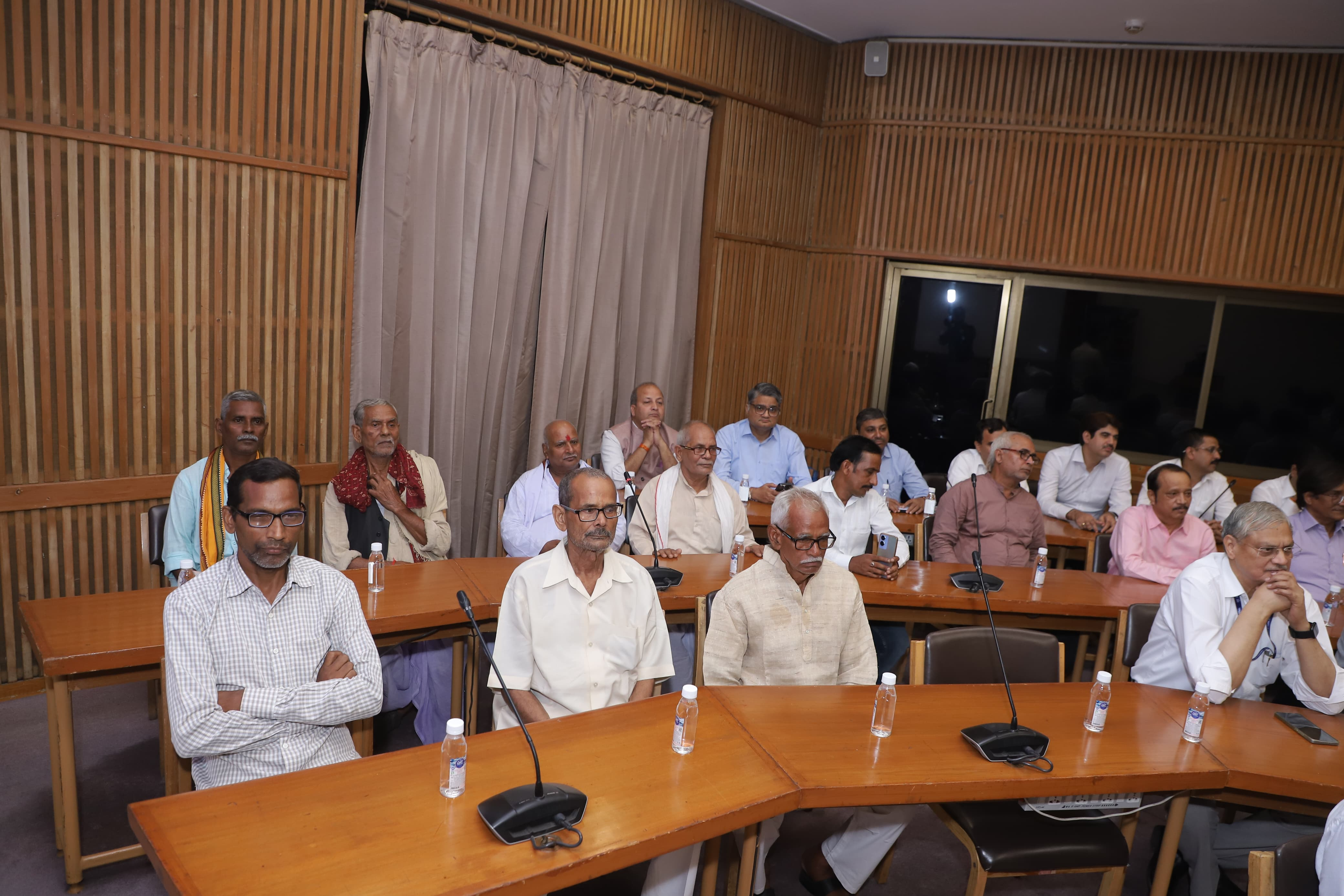Varanasi, 26 September (HS). The Department of Neurology of Banaras Hindu University has done research on 'Khesari' dal (Keraai) grown in Purvanchal and Bihar and many other states. The short film Khesari 'Kal Aaj Aur Kal' based on this research was released at India International Centre in Delhi. Many well-known neurologists of the country were present in it.
All the neurologists in the program said that there is no direct evidence of paralysis due to Khesari Dal. Doctors said that Khesari Dal is beneficial for health. Farmers of Ballia and Ghazipur who cultivate Khesari Dal were also present in this program. BHU neurologist Prof. U.K. Mishra gave this information.
He said that Khesari is a dal of the poor. When scientists claimed that eating Khesari dal causes paralysis, the government banned the distribution, storage and use of this dal in the 60s itself. But even today Khesari is much cheaper than food items like Arhar and Chana. Therefore, Khesari dal is regularly used to adulterate gram flour and other dal products. Khesari dal is similar to Arhar dal, so it is used by hotels, restaurants to increase their profits. It is used to adulterate expensive dal-based food items. Neurologist Prof. U.K. Mishra told about the research done on lameness in UP.
He emphasized that there is no direct link between eating Khesari and paralysis or neurological disease. He said that the research of great medical scientists like Dr. Shantilal Kothari, Professor S.N. Rao on this subject will always be remembered. The joint team of Prof. Vijaynath Mishra, Prof. R.N. Chaurasia, Prof. Abhishek Pathak of the Department of Neurology of BHU Institute of Medical Sciences and Prof. CB Tripathi of IHBAS New Delhi conducted research on 9 thousand people of those areas of Bihar and Madhya Pradesh including Mohammadabad of Ghazipur district of the state, where Khesari dal is being produced and used.
The BHU team led by Prof Mishra concluded that consumption of the legume alone does not cause lathyrism. Khesari dal contains 31 per cent protein, 41 per cent carbohydrates, 17 per cent total dietary fibre, two per cent fat and two per cent ash on a dry matter basis. “Apart from being cost-effective, this dal requires less fuel to cook. But the most important aspect is that apart from being non-neurotoxic, Lathyrus dal actually contains some cardioprotective nutrients, as per published studies by scientists from the National Institute of Nutrition Hyderabad. The team conducted this study in 20 districts of UP and Bihar. Singer Ashtabhuja Mishra expressed the pain of khesari producing farmers through acting. President of Indian Neurology Association Prof Devshis Chaudhary also supported the research on the current context of neurolathyrism and lifting the ban on khesari dal.
 look news india
look news india
